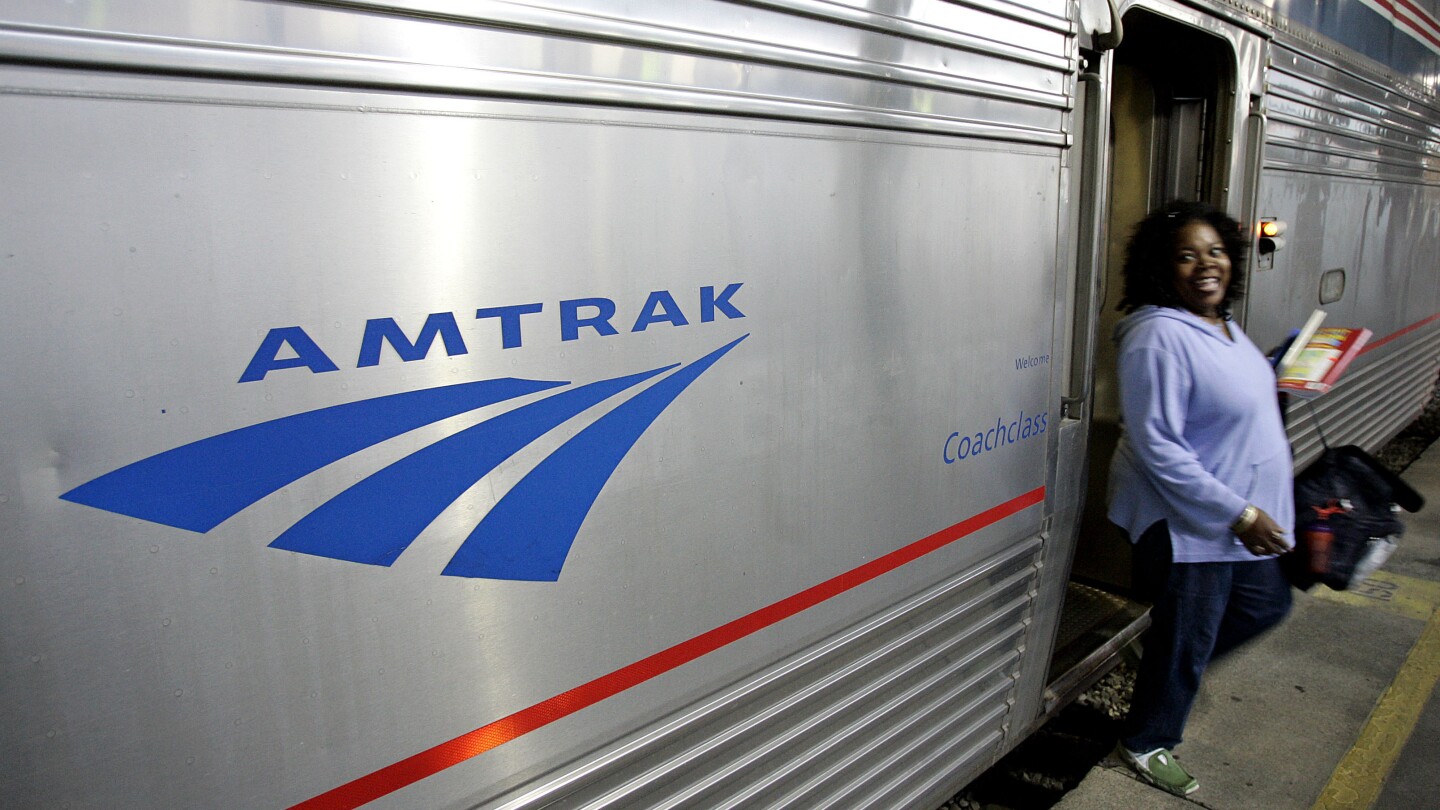- cross-posted to:
- politics
- cross-posted to:
- politics
WASHINGTON (AP) — The Biden administration announced Monday that it has awarded more than $1.4 billion to projects that improve railway safety and boost capacity, with much of the money coming from the 2021 infrastructure law.
“These projects will make American rail safer, more reliable, and more resilient, delivering tangible benefits to dozens of communities where railroads are located, and strengthening supply chains for the entire country,” Transportation Secretary Pete Buttigieg said in a statement.
The money is funding 70 projects in 35 states and Washington, D.C. Railroad safety has become a key concern nationwide ever since a train carrying hazardous chemicals derailed and caught fire in East Palestine, Ohio, in February. President Joe Biden has ordered federal agencies to hold the train’s operator Norfolk Southern accountable for the crash, but a package of proposed rail safety reforms has stalled in the Senate where the bill is still awaiting a vote. The White House is also saying that a possible government shutdown because of House Republicans would undermine railway safety.
The projects include track upgrades and bridge repairs, in addition to improving the connectivity among railways and making routes less vulnerable to extreme weather.
Among the projects is $178.4 million to restore passenger service in parts of Alabama, Louisiana and Mississippi along the Gulf of Mexico for the first time since Hurricane Katrina struck in 2005.
“This is a significant milestone, representing years of dedicated efforts to reconnect our communities after the devastation of Hurricane Katrina,” Sen. Roger Wicker, R-Miss., said in a statement. “Restoring passenger rail service will create jobs, improve quality of life, and offer a convenient travel option for tourists, contributing to our region’s economic growth and vitality.”
The grant should make it possible to restore passenger service to the Gulf Coast after Amtrak reached an agreement with CSX and Norfolk Southern railroads last year to clear the way for passenger trains to resume operating on the tracks the freight railroads own.
“We’ve been fighting to return passenger trains to the Gulf Coast since it was knocked offline by Hurricane Katrina. That 17-year journey has been filled with obstacles and frustration — but also moments of joy, where local champions and national advocates were able to come together around the vision of a more connected Gulf Coast region,” Rail Passengers Association President & CEO Jim Mathews said.
In one of the biggest other grants, the Palouse River & Coulee City Railroad in Washington state will get $72.8 million to upgrade the track and related infrastructure to allow that rail line to handle modern 286,000-pound railcars.
A project in Kentucky will receive $29.5 million to make improvements to 280 miles of track and other infrastructure along the Paducah and Louisville Railway.
And in Tennessee, $23.7 million will go to helping upgrade about 42 bridges on 10 different short-line railroads.



Because American does not have any government owned rails. While in hindsight giving private companies mostly benefit them to help them with future growth. It’s a lot cheaper than building a whole new rail system. It’s not really great for the outlook on the government to force transition of ownership (and bribing…I mean lobbying rail companies spend more trying to prevent that)
Similarly for internet as to why Comcast/Xfinity has been dominating is that their infrastructure is mostly government funded.
I do agree with you but, as we can tell this is a relatively socialist ideology, but not going into deep we know why we can’t.
That is actually incorrect, Amtrak (which a part of the federal government in all but name) owns a little over six hundred miles of track.
Anyways the stupid thing is the federal government used to own over twelve hundred miles of track in the northeast and Midwest with mainlines in major cities like Boston, New York and Washington DC. They sold it off to what is now Northfolk southern milesand CSX in the nineties as it was making a profit.